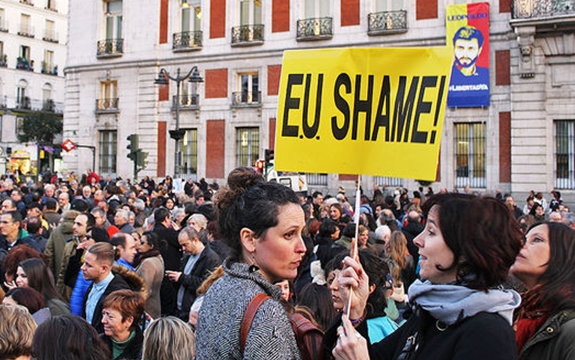Dealing with Mr Erdogan

In Summary
- Analysis for Inside Story by Professor Klaus Neumann, Swinburne Institute for Social Research
It would be easy to lose count of the European Council meetings convened in recent months to devise a concerted response to the arrival of refugees in Europe. Each of them ended either inconclusively or with resolutions that weren’t worth the paper they were written on – until last week, that is. On Thursday and Friday, for the first time in a long while, Europe’s heads of government found common ground on refugee issues and made decisions that stand a fair chance of being implemented. Despite the unanimity, though, it would be a bad thing if all those decisions were put into effect.
The EU leaders’ previous meeting, on 7 March, was convened at Germany’s request to discuss an agreement between the European Union and Turkey to prevent refugees from crossing into Greece from Turkey. The deal was intended to allow European countries to re-open their borders. Angela Merkel and her government wanted a European solution to the refugee crisis and a return to free movement across Europe’s internal borders not least because of upcoming elections in three German states.
The 7 March summit ended without an agreement, at least partly because Turkey surprised the European Union with new proposals, and Merkel returned empty-handed to Berlin. A week later, the Christian Democrats, the party she has led for the past sixteen years, lost ground in elections in Sachsen-Anhalt in East Germany and in Rheinland-Pfalz and Baden-Württemberg in the West, as a significant number of conservative voters switched their support to the populist far-right Alternative für Deutschland (Alternative for Germany), or AfD.
It’s important to recognise that Merkel herself was not necessarily among the losers in those three states. The leaders of the Christian Democrats in Rheinland-Pfalz and Baden-Württemberg, who both expected to form government after the elections, lost heavily. But the evidence suggests that they did so partly because they had disowned Merkel. Among the clear winners were the reigning premiers of these states, Malu Dreyer of the Social Democrats and Winfried Kretschmann of the Greens, both of whom are vocal supporters of Merkel’s refugee policies.
This didn’t stop Merkel’s internal critics. Last week, they continued to blame her for the Christian Democrats’ losses, claiming that the conservatives’ poor performance was entirely due to the federal government’s refugee policies and demanding that she agree at last to an upper limit on the number of refugees admitted by Germany. Merkel refused to do so, as she has done many times over the past few months. She also criticised attempts to close the escape route through the Western Balkans. But she promoted a Turkish–European deal to stem the flow of refugees to the European Union.
Written by Professor Klaus Neumann, Swinburne University of Technology. Continue reading on Inside Story

